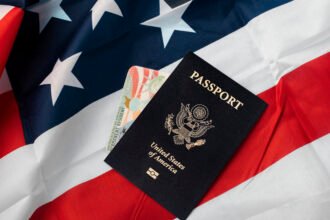In a world increasingly driven by knowledge economies and rapid innovation, countries are racing to attract top-tier talent. The United Kingdom has taken a strategic lead in this global race through its Global Talent Visa, designed specifically to appeal to high-skill professionals who can contribute to the UK’s technological, academic, cultural, and scientific advancement. This visa offers not just a path to residency but a rare combination of flexibility, prestige, and autonomy. For professionals with exceptional track records or high potential, it represents more than just an immigration pathway it’s an opportunity to shape global impact from within the UK’s innovation ecosystem.
What is the Global Talent Visa?
The Global Talent Visa, introduced in 2020 as a successor to the Tier 1 Exceptional Talent Visa, offers a route for individuals who are leaders or emerging leaders in their fields. Unlike conventional visas tied to employers or job offers, this program focuses on merit and accomplishments. As outlined by the UK Home Office, the visa aims to enhance the UK’s ability to attract world-renowned researchers, tech entrepreneurs, artists, and academic leaders. It provides a flexible residency route for up to five years, extendable, and is an attractive option for those looking to make a long-term professional and personal home in the UK.
Key Eligibility Categories
Applicants must fall into one of three main fields: academic and research, arts and culture, or digital technology. Each category has unique criteria and designated endorsing bodies, such as the Royal Society or British Academy for researchers, and Arts Council England for creatives. For digital tech professionals, a new endorsing body has replaced the now-defunct Tech Nation. Individuals may apply under “exceptional talent” (proven leaders) or “exceptional promise” (emerging leaders). The visa further streamlines entry for prestigious award holders, allowing some to skip the endorsement stage entirely.
Application Process in Two Stages
The first stage involves obtaining an endorsement from an appropriate body that validates the applicant’s expertise and contributions. For instance, academics must show significant published research or leadership roles in grant-funded projects. Artists submit portfolios and awards, while tech leaders might present GitHub contributions, patents, or scaling company experience. Once endorsed, applicants proceed to stage two a visa application through UK Visas and Immigration. The whole process can be completed in a matter of weeks, depending on application completeness and location.
Why It Attracts Top Talent
The most significant appeal lies in flexibility. The visa does not require employer sponsorship or a specific job offer. This freedom allows professionals to work for multiple employers, be self-employed, or even take breaks between contracts without risking their immigration status. It’s ideal for startup founders, researchers, and creatives who often operate outside conventional employment structures. Unlike the Skilled Worker Visa, there is no minimum salary threshold, allowing participation from professionals in academia or nonprofit sectors. Dependents (spouses and children) can also live, work, and study in the UK under the same visa.
Fast Track to Permanent Residency
One of the strongest incentives is its pathway to Indefinite Leave to Remain (ILR). Those under the “exceptional talent” route may apply for ILR after just three years, while “exceptional promise” applicants may do so after five. ILR grants near-citizenship rights including permanent residency and freedom from immigration restrictions. For ambitious professionals seeking stability, this visa provides one of the fastest settlement options globally, especially for those in STEM or emerging technologies.
Tailored Criteria by Sector
Each sector has clearly defined benchmarks. In digital technology, applicants might demonstrate commercial success, open-source contributions, or leading innovative projects. The academic route favors those with fellowships, publications in top journals, or roles in major grant-funded research. The cultural route values international recognition, such as film festivals, music tours, or museum exhibitions. For example, individuals working in artificial intelligence could submit research recognized by institutions like Alan Turing Institute or participation in major industry conferences like NeurIPS or ICLR. Arts professionals may highlight awards from the BAFTAs, Cannes, or British Fashion Council.
Support and Resources Available
Applying can be complex, but multiple organizations offer resources. Leading law firms such as Fragomen or DavidsonMorris provide tailored support for building strong endorsement cases. Additionally, platforms like Global Talent Visa Forum provide peer reviews and shared applicant experiences. Some UK universities support academic staff in preparing endorsement portfolios. While legal aid isn’t mandatory, applicants benefit significantly from advisors familiar with the nuances of each endorsing body.
Common Mistakes to Avoid
Weak or vague evidence is a common reason for rejection. Letters of recommendation should be specific, reference quantifiable impact, and come from senior industry figures. A fragmented portfolio or unclear career narrative can also weaken the application. It’s crucial to craft a compelling personal statement and structure evidence according to guidelines. For researchers, citing papers with high citation indices helps. Tech applicants should showcase product success, downloads, or market traction, while creatives should include links to press, exhibitions, or streaming performance.
Global Comparison: How UK Stands Out
Several countries offer talent visas, but few match the UK’s level of autonomy and recognition. Australia’s Global Talent Independent Program targets STEM leaders but still requires nomination and an Expression of Interest. Canada’s Global Talent Stream ties applicants to employers. The U.S. O-1 visa is reputation-based but heavily dependent on employer sponsorship. The UK, by contrast, empowers individuals to build their own path, without being tied to specific firms or institutions. This makes it uniquely attractive to freelancers, founders, and solo researchers.
Benefits for the UK Economy
The visa is part of the UK’s broader strategy to position itself as a leader in innovation post-Brexit. It helps address talent shortages in high-growth industries such as AI, biotech, and quantum computing. Many visa holders go on to launch successful startups, contribute to academic breakthroughs, or produce culturally impactful works. According to the UK’s Office for National Statistics, high-skill immigrants significantly boost productivity and innovation. The Global Talent Visa ensures that such individuals can bring their expertise directly into the heart of the UK’s economy.
The Role of Prestigious Awards
Winners of elite international prizes can apply without endorsement. These include Nobel Prizes, Turing Awards, Oscars, and more. The Home Office maintains a regularly updated list of recognized awards. This initiative fast-tracks individuals who are already globally proven in their field, underscoring the UK’s commitment to attracting the world’s best. It also simplifies the process for those who are publicly known figures with a clear track record of contribution and excellence.
Real-Life Success Stories
Many professionals have found both creative and professional freedom under this visa. A biotech founder from Brazil launched a UK-based lab with access to Cambridge’s innovation ecosystem. A Kenyan digital marketer now consults with UK startups while running her own brand. A French visual artist received global gallery representation after relocating to London. These stories are shared across LinkedIn, Medium, and YouTube, providing inspiration and guidance to others pursuing similar journeys.
Dependents and Family Life
Spouses and children under 18 are eligible to join the main visa holder and receive full rights to work or study. There are no restrictions on the kind of work dependents can do, which is rare in global visa programs. Children can attend UK schools, and the family can apply for ILR and eventually British citizenship. This makes the visa attractive to professionals seeking not just career growth but long-term family settlement in a globally connected country.
Post-Endorsement Steps
After receiving endorsement, applicants must submit biometric data and complete the visa application. Documents include a valid passport, tuberculosis test results (if applicable), and proof of English language proficiency in some cases. The standard processing time is three to eight weeks, but expedited services are available. Successful applicants receive a Biometric Residence Permit (BRP), which must be collected upon arrival in the UK.
Conclusion
The Global Talent Visa redefines how immigration policy can benefit both host countries and applicants. It empowers individuals to contribute meaningfully to the UK’s future while giving them the autonomy to define their path. In a world where talent is mobile and opportunity is global, this visa makes the UK an attractive home for those ready to lead, innovate, and inspire.


